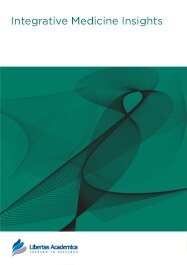

Publication Date: 14 Nov 2007
Journal: Integrative Medicine Insights
Citation: Integrative Medicine Insights 2007:2 61-69

It has been well reported that complementary medicines can significantly alter the way the body handles conventional drugs, leading to potential fatal herb-drug interactions. The aim of the present study was to investigate the molecular mechanism of drug interactions involving St John’s wort (SJW) (Hypericum perforatum L), a popular herbal medicine widely used for depression, particularly examining changes in the expression of cytochrome P450 CYP3A, the most abundant drug metabolising CYP enzymes in man.
Eighteen Sprague-Dawley (SD) rats were assigned randomly into 3 groups (n = 6/group): control, low dose and high dose (500 and 1000 mg/kg/day of SJW, equal to 1500 and 3000 μg/kg/day of Hypericin). Each group was treated with SJW or control preparation, by gastric gavage, for 14 consecutive days. Liver and intestinal CYP3A activity and protein and mRNA levels, from fi ve segments of the intestine, were examined using CYP3A-dependent erythromycin N-demethylation activity assay, quantitative immuno-blotting and real-time RT-PCR.
Increase in CYP3A activity and protein level by SJW was observed in some intestinal regions, with a 3.0 fold increase in liver CYP3A activity and a 10.6 fold increase in liver CYP3A1 mRNA (p 0.05) in a dose dependent manner. The results suggested that up regulation of liver CYP3A mRNA and differential induction of intestinal CYP3A play an important role in the molecular mechanism of herb-drug interactions.
PDF (1.11 MB PDF FORMAT)
RIS citation (ENDNOTE, REFERENCE MANAGER, PROCITE, REFWORKS)
BibTex citation (BIBDESK, LATEX)

It is great pleasure to work as a peer reviewer for LA. The contact between us is fast and friendly. They have my highest recommendation and I look forward to working with them further.
Facebook Google+ Twitter
Pinterest Tumblr YouTube